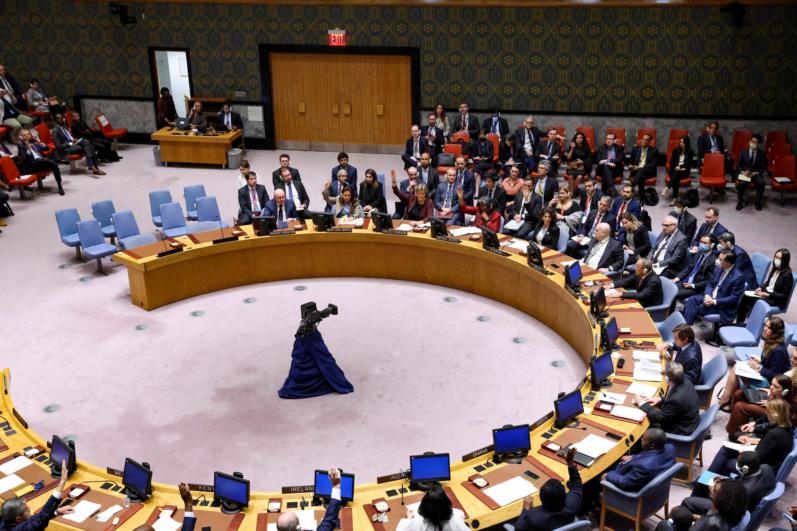UN leaders hail pope's South Sudan trip for its important message of peace
UNITED NATIONS (OSV News) -- The recent trip of Pope Francis and two other prominent Christian leaders to war-torn South Sudan has sent a powerful message about the need for peace in the world's newest nation, according to United Nations officials.
Speaking at a U.N. Security Council briefing on South Sudan March 6, Nicholas Haysom, special representative of the U.N. secretary-general, said the pope's Feb. 3-5 trip with Anglican Archbishop Justin Welby of Canterbury and the Rev. Iain Greenshields, moderator of the Church of Scotland, had "served to echo the message of peace, tolerance, reconciliation and civic participation so often called for by the South Sudanese themselves."
During that visit, Pope Francis encouraged South Sudanese political leaders to put an end to years of violence and to unite for the sake of the East African nation's people.
The pope also urged the importance of including youth in dialogue and women in the country's decision-making processes.
"I think we can point to the positive impact of the ecumenical pilgrimage to South Sudan (by) His Holiness the pope, the archbishop of Canterbury and the moderator of the Church of Scotland," Haysom told OSV News following the briefing at the U.N. headquarters in New York.
"Because they echoed many of the themes that we hear from (South Sudanese) civil society … over the last year," Haysom said.
Before becoming independent in 2011, South Sudan was a part of Sudan, then Africa's largest nation, where civil war had raged for decades between the predominantly Muslim north and the mostly Christian south.
After independence, fighting among South Sudan's new leadership soon erupted into civil war resulting in an estimated hundreds of thousands of deaths and massive suffering.
Despite a 2018 peace agreement that stopped the most deadly fighting and created a transitional government, some ethnic violence continues.
Nearly 20,000 peacekeepers now serve with the U.N. Mission in South Sudan (UNMISS) to protect civilians and build durable peace in the conflict-affected country of more than 10 million people.
The pope's February visit there, jointly with Archbishop Welby and Rev. Greenshields, should be a help in that regard, explained U.N. secretary-general spokesman Stéphane Dujarric.
"Religious leaders have great potential to do good, to work for peace. I think the joint visit (to South Sudan) by the pope, the archbishop of Canterbury (and) the moderator of the Church of Scotland was extremely important," Dujarric said during a noon briefing at the U.N. March 6, in response to a question by OSV News.
"Religious leaders have a lot of power and a lot of influence, and it is critical that they use it for good," he said.
- - -
James Martone writes for OSV News from New York.
- - -
BRIEF: UNITED NATIONS (OSV News) -- The recent trip of Pope Francis and two other prominent Christian leaders to war-torn South Sudan has sent a powerful message about the need for peace in the world's newest nation, according to United Nations officials. Speaking at a U.N. Security Council briefing on South Sudan March 6, Nicholas Haysom, special representative of the U.N. secretary-general, said the pope's Feb. 3-5 trip with Anglican Archbishop of Canterbury Justin Welby and the Rev. Iain Greenshields, moderator of the Church of Scotland, had "served to echo the message of peace, tolerance, reconciliation, and civic participation so often called for by the South Sudanese themselves." During that visit, Pope Francis encouraged South Sudanese political leaders to put an end to years of violence following its 2011 independence from Sudan and to unite for the sake of the East African nation's people. The pope also urged the importance of including youth in dialogue and women in the country's decision-making processes. Following the March 6 briefing at U.N. headquarters in New York, U.N. secretary-general spokesman Stéphane Dujarric said the ecumenical visit was "extremely important" in response to a question by OSV News. He said, "Religious leaders have a lot of power and a lot of influence, and it is critical that they use it for good."


















